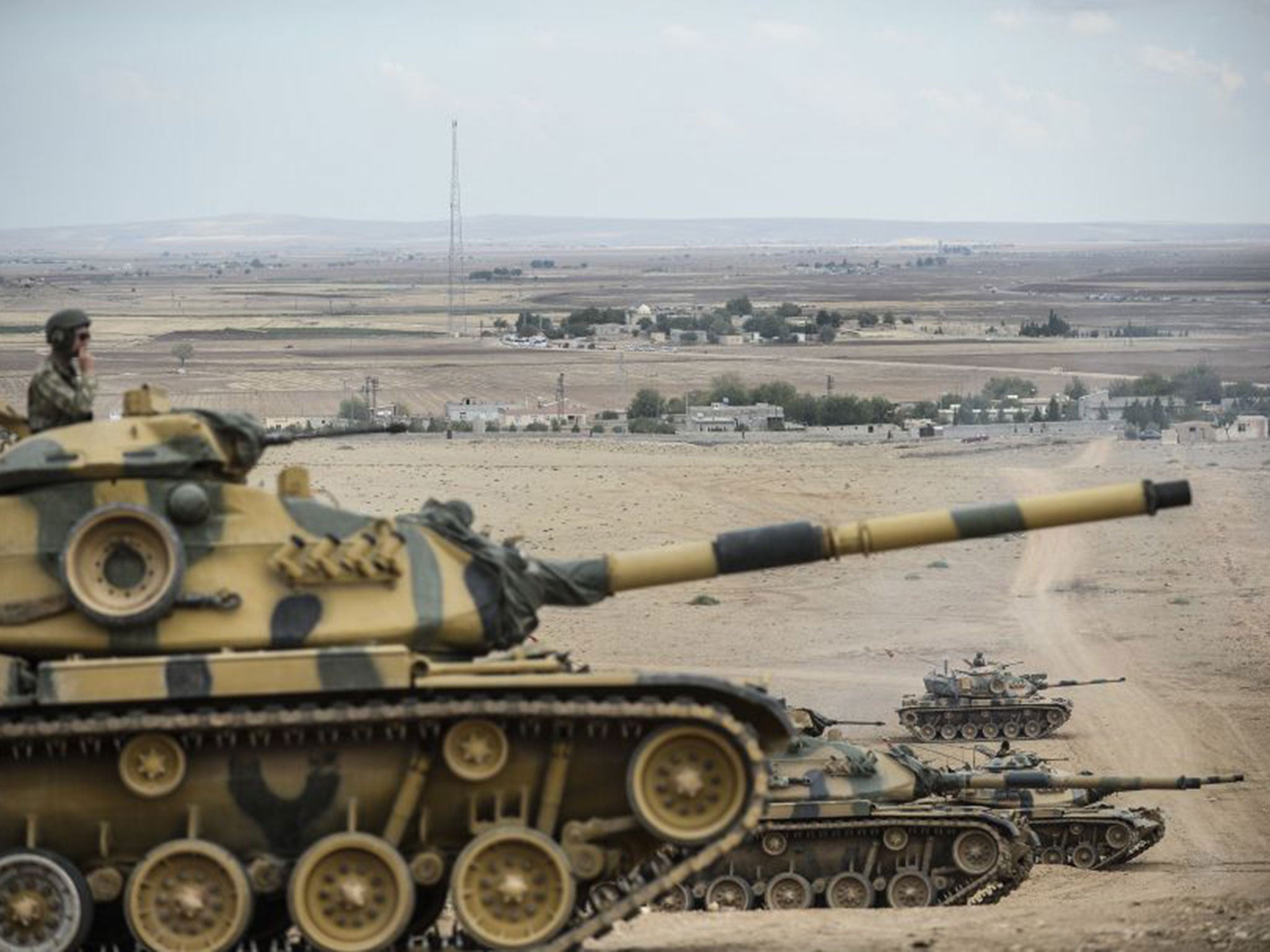The West needs to balance tactics and strategy in the battle against Isis
Diplomatic Channels

"Strategy without tactics is the slowest route to victory: tactics without strategy is just the noise before defeat." General Lord Richards, the former head of Britain’s armed forces, was quoting Sun Tzu while talking about the war against Isis at his book launch in London last week as an array of commanders, of the past and present, nodded agreement.
A day later, Barack Obama’s deputy national security advisor, Tony Blinken, was at pains to stress while in London that the military planners of the current campaign were as aware of getting the strategy right as the ancient and venerated Chinese military tactician. Just under five weeks ago, the US President was subjected to considerable criticism for admitting “we don’t have a strategy yet” as the bombing got under way, but one was formulated; no deployment of ground forces, the forming of a coalition, the arming and training of Syrian “moderate” opposition fighters and the Kurdish Peshmerga militia, retraining of the Iraqi forces and air strikes.
We have also learned about the bits which are not part of the strategy. Turkey’s demands for a buffer zone and a no-fly zone in Syria as the price for it joining the campaign were not even “on the front burner”, Mr Blinken said during a visit to London. Similarly, Ankara’s demands for military action to be extended was dismissed; the removal of Basher al-Assad without a replacement administration would lead to “as much bad as good”. Kobani was unlikely to be saved without ground forces. The inference on this was quite clear; the Turks have tanks across the border, they could step in whenever they wanted to do so.
The Turkish government, of course, did not intervene and is unlikely to do so. There are credible reports that the Kurds in Kobani were told by Ankara that they could have military help, but only in return for dismantling the autonomous administration which had sprung up amid the turmoil of Syria’s civil war, accept a buffer zone and renounce any future claim of self-determination especially in association with compatriots across the border where the PKK had been engaged in a long and attritional conflict with the state.
President Recep Tayyip Erdogan has made it tacitly clear that it is not in Turkey’s strategic interest for the Kurdish cantons in Syria to survive and he is prepared to accept the unrest which has swept through the Turkish Kurdish community sparked by this stance, leaving dozens dead in clashes with security forces and nationalists. Conversely, it is not in the interest of the Kurds to have a buffer zone that will mean the end to their autonomy and the presence of Turkish forces on the territory they had carved out for themselves for the foreseeable future.
But the Turks are close to agreeing to two things that would play important roles in the West’s campaign. The use of one of their biggest airbases and the setting up of training facilities for Syrian rebels. Incirlik has vast facilities, will be tactically useful in the air campaign and is the ideal launch point if troops were to be sent to northern Iraq: the Turkish government refused its use during the 2003 Iraq invasion. The training of the fighters lies at the centre of the strategy Mr Obama outlined. But immediate questions arise: training centres for the “moderate” fighters have been existence for well over a year, with little evidence that their graduates have not turned the tide of battle either against regime forces or Isis and Jabhat al-Nusra. The numbers instructed in Turkey, around 4,000, would not be enough to have much impact; General Martin Dempsey, the head of the US military, had stated that a force of around 15,000 Syrian rebels would be needed to fight Isis.
Exactly who gets trained will also be an issue. One of the key problems with the opposition fighters is that Turkey, Qatar and Saudi Arabia and the Gulf states have been backing opposing groups, each pursuing its broader strategic interest. One evening in September last year we came across a roomful of foreigners at a run-down hotel in the Turkish border town of Antakya. “Those two are Yemenis, those three are Libyans and the ones in the corner are Chechens,” an opposition activist from Aleppo pointed out. They crossed the border later that week, the Turkish border guards turning a blind eye; that jihadist contingent was not on its way to join the “moderates”.
The training, when it eventually gets under way, would take time: the US-led alliance is in for the long haul. Sun Tzu held “there is no instance of a nation benefiting from prolonged warfare. Speed is the essence of war”. However, the public in the US and Western Europe will not be too questioning of an air campaign where there are minimal chances of body bags coming back. They are unlikely to compare the cost of firing each Brimstone missile, around £105,000, to education or health cuts. But what happens in the future? General Dempsey had stated that US boots on the ground may be needed to beat Isis – a view at odds with President Obama’s strategy – with the likelihood of casualties.
There are tactics and strategy on offer for the other side in such a conflict from Sun Tzu. “If the enemy is in superior strength evade him... If his forces are united, separate them... Put division between sovereign and subject... Appear where you are not expected.”
We don’t know, of course, if the supposed sophistication of Isis includes studying the Art of War.
Subscribe to Independent Premium to bookmark this article
Want to bookmark your favourite articles and stories to read or reference later? Start your Independent Premium subscription today.

Join our commenting forum
Join thought-provoking conversations, follow other Independent readers and see their replies